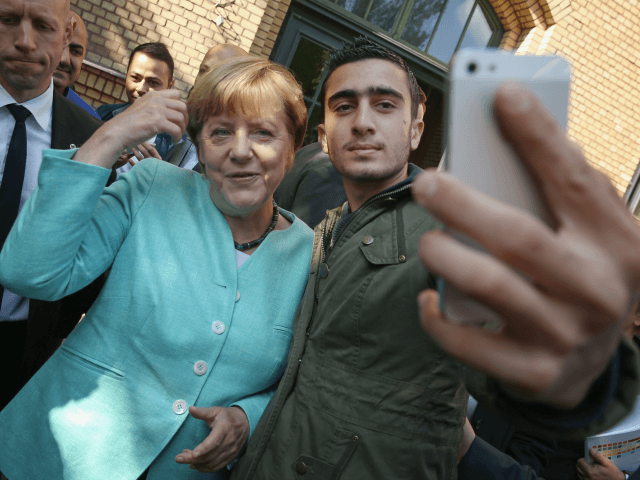A recent poll has revealed Germany to be deeply divided on Chancellor Angela Merkel’s migrant policies, with the majority of Germans fearing a rise in crime associated with increased migrant numbers.
The PolitBarometer, conducted between the 6th and 8th of December, reveals that just over half – 52 per cent – of Germans fear that the number of migrants in the country will lead to an increase in crime.
Of even greater concern is the economic dimension of mass migration with 60 per cent fearing that the government will have to tighten its belt in order to cover costs of accommodating, feeding, and integrating migrants meaning that key services for native Germans will be affected.
The figures by pollster Forschungsgruppe Wahlen also show that 58 per cent of respondents think migrants and their integration in Germany is the nation’s number one issue.
In October, research was conducted by Ipsos Public Affairs, which took the views of thousands of people in 25 nations worldwide, found that Germany had overtaken Britain as the European nation most concerned with immigration – a significant development for a nation which has long prided herself on her openness to migrants.
Since the beginning of the migrant crisis, over one million migrants entered the country leading to a rash of migrant crime, violence, and sex attacks, as well as increased strain on housing and public services.
Figures buried in a report by Germany’s interior ministry revealed that without migrants considered, crime rates in Germany would have remained roughly static since 2014. But, in fact, the country recorded an extra 402,741 crimes committed by migrants.
In 2015, German residents were forced to leave their homes by local authorities to make way for Middle Eastern migrants. In July 2016, despite there being nearly 400,000 homeless people in Germany, the government built brand-new apartments in affluent town centres to house single male migrants.
The PolitBarometer also showed that Chancellor Merkel has fallen to fourth place in the list of ten most important national political figures. Ahead of her were Finance Minister Wolfgang Schäuble (number 3), Minister-President of the state of Baden-Württemberg Winfried Kretschmann (number 2), and Foreign Minister Frank-Walter Steinmeier was at number one being considered the most important politician in Germany.

COMMENTS
Please let us know if you're having issues with commenting.